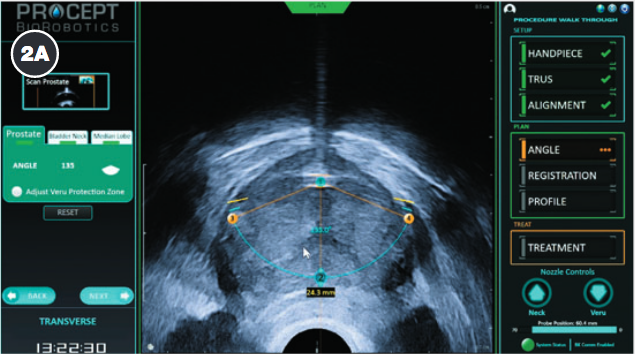
Men's Health
Latest News
Latest Videos

CME Content
More News

"Men’s centers here are offering testosterone treatments without doing much testing beforehand. They also give little or no warning about potential comorbidities of testosterone," says one urologist.

"Targeted counseling regarding sleep hygiene improvements may positively affect several urologic disorders while also facilitating a host of overall health benefits," write Hudson Pierce and Bilal Chughtai, MD.

The second-generation AdVance XP male sling system offered good mid-term results for the treatment of post-radical prostatectomy male stress urinary incontinence, researchers reported at the AUA annual meeting in Chicago.

Men with low levels of free testosterone 3 months after undergoing radical prostatectomy could face increased chance of early recurrence of prostate cancer, according to researchers from the University of California Irvine.

Male partners of infertile couples experience substantial emotional and psychological distress, which is often unrecognized, according to new data presented at the AUA annual meeting in Chicago.

A new study is suggesting that severe male factor infertility may predispose a man to lower cognitive function.

This article briefly reviews the current guidelines and proposes a clinical care pathway for health care practitioners who perform the initial evaluation of infertile couples.

Novel therapies are promising but face questions about patient selection and efficacy.

"The observations that penile prosthesis surgical infections occurring early are frequently associated with anaerobic bacterial organisms and that these infections overall comprise diverse pathogens including fungal organisms fundamentally alter conventional thinking related to this topic area," writes Arthur L. Burnett, II, MD, MBA.

Isolated anaerobic organisms appear to occur most rapidly on average when infections occur following surgical intervention with an inflatable penile prosthesis (IPP), according to data presented at the 2018 AUA annual meeting in San Francisco.

Erectile function after robot-assisted laparoscopic prostatectomy may be better in patients who are treated with fibrin tissue sealing sheets, according to interim results from a randomized controlled trial conducted in Japan.

Surgery was associated with improved cancer-specific and overall mortality compared with radiation therapy, according to a recent study.

No evidence currently exists to suggest screening is either harmful or beneficial.

A new study is suggesting that many couples with male factor infertility are being treated with intrauterine insemination (IUI) or in vitro fertilization (IVF) even though the men are not being fully investigated.

Minimally invasive surgical options took front and center in 2018 when the AUA published its revised guideline on the surgical management of male lower urinary tract symptoms secondary to BPH.

In this article, we provide an overview of the key concepts a clinician must take into consideration when consulting with men interested in undergoing a cosmetic surgical procedure.

Convective radiofrequency water vapor thermal therapy (Rezum) can modestly improve symptoms of BPH, according to Daniel Mollengarden, MD.

Also learn about a new stone device, an at-home testosterone enanthate injection, and more.

The public health impact of increasing paternal age requires further investigation, and clinicians should discuss with their patients the potential impact older fathers may have on their children, according to researchers at Stanford University School of Medicine, Stanford, CA.

Social isolation may have serious health consequences; urologists can help.

Procedure safest when performed in <60 minutes.

“There exists compelling evidence to suggest smoking and drinking alcohol can have a dramatic impact on male and female reproductive potential,” write Premal Patel, MD, and Ranjith Ramasamy, MD.

"When analyzing efficacy of minimally invasive/surgical therapies for lower urinary tract symptoms secondary to BPH, we appropriately focus on subjective criteria and objective criteria. While we discuss retreatment rates, we don’t measure failure of therapies by how many men restart LUTS/BPH medications," writes Steven A. Kaplan, MD.

Tissue-eliminating procedures outperform tissue-necrosing procedures for reducing the need for medication in patients with benign prostatic enlargement, researchers say.

Results of the prospective MedLift study establish the efficacy and safety of the Prostatic Urethral Lift (PUL [UroLift System]) procedure for treatment of symptomatic BPH in men with an enlarged median lobe.












